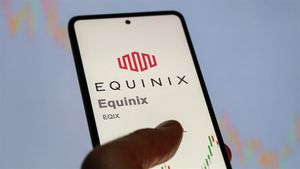
Specialty insurance company Markel Group (NYSE: MKL) beat Wall Street’s revenue expectations in Q3 CY2025, but sales fell by 5.3% year on year to $4.37 billion. Its non-GAAP profit of $31.61 per share was 33% above analysts’ consensus estimates.
Is now the time to buy MKL? Find out in our full research report (it’s free for active Edge members).
Markel Group (MKL) Q3 CY2025 Highlights:
- Revenue: $4.37 billion vs analyst estimates of $3.92 billion (5.3% year-on-year decline, 11.5% beat)
- Adjusted EPS: $31.61 vs analyst estimates of $23.77 (33% beat)
- Market Capitalization: $24.44 billion
StockStory’s Take
Markel Group’s third quarter results were well received by the market, reflecting the impact of decisive restructuring and improved operating discipline across its core insurance operations. Management attributed the quarter’s performance to organizational changes such as exiting underperforming business lines, streamlining reporting structures, and investing in higher-growth international and personal lines. CEO Thomas Gayner highlighted that “every reportable segment made positive contributions,” while CFO Brian Costanzo emphasized that the new segment structure and enhanced disclosures offered greater transparency into profitability and capital allocation.
Looking forward, Markel Group’s guidance is shaped by plans to leverage its revamped segment structure, invest in technology, and pursue selective growth in profitable insurance lines. Management noted that disciplined expense management and ongoing investments—especially in personal lines and international markets—are expected to support future earnings. According to Simon Wilson, CEO of Markel Insurance, “Step by step, we're working towards achieving our full potential,” pointing to early evidence that recent actions are starting to drive better results. The company remains focused on maintaining prudent underwriting standards and capital allocation as it navigates evolving market conditions.
Key Insights from Management’s Remarks
Management credited the quarter’s positive trajectory to specialty insurance profitability, segment realignment, and a greater emphasis on accountability within business units.
- Insurance segment restructuring: Markel Group reorganized its insurance business into four simplified divisions and shifted reporting to a segment-based structure, allowing for clearer visibility into performance and accountability at the business unit level.
- Underwriting improvements: The insurance segment achieved a combined ratio of 93% in the quarter, improved from 97% in the prior year, due primarily to lower catastrophe losses and continued focus on core lines. Management emphasized that recent exits from underperforming businesses and tighter risk selection contributed to this improvement.
- International and personal lines growth: International lines and U.S. personal lines delivered strong underwriting premium growth, supported by past investments in talent and technology. CEO Simon Wilson cited these divisions as key drivers of both top-line and profitability momentum.
- Expense discipline and technology investment: While the overall insurance expense ratio remained elevated, management addressed the balance between cost control and targeted investment—especially in technology infrastructure for personal lines—to support future scale and efficiency.
- Share repurchase focus: Markel continued to return capital to shareholders, reducing its share count through ongoing buybacks and highlighting capital efficiency as a strategic priority. The company indicated it will remain opportunistic with buybacks, depending on valuation and available opportunities for reinvestment.
Drivers of Future Performance
Markel’s outlook centers on maintaining underwriting discipline, scaling targeted growth areas, and continuing operational improvements to enhance long-term profitability.
- Sustained underwriting discipline: Management emphasized that future performance will rely on continued prudent risk selection, particularly in the U.S. and international insurance divisions. The company plans to avoid chasing unprofitable growth and will focus on maintaining or improving its combined ratio.
- Strategic technology and talent investments: Investments in technology for the personal lines business and targeted hiring across international markets are expected to drive scale and competitive advantage. Markel believes these efforts will support both top-line growth and operating leverage over time, even as they may temporarily elevate expense ratios.
- Market and segment dynamics: Management acknowledged potential headwinds from increased competition in property and E&S (excess and surplus) markets, as well as industry-wide shifts in reinsurance pricing. The company’s diversified business model, including industrial, financial, and consumer segments, is seen as providing resilience against insurance cycle volatility.
Catalysts in Upcoming Quarters
Looking ahead, the StockStory team will be monitoring (1) the execution of expense reduction initiatives and technology investments in personal lines, (2) progress on underwriting discipline and portfolio rationalization in U.S. Wholesale and Specialty, and (3) growth in international and program segments, especially as new business plans are implemented for 2026. Shifts in reinsurance pricing and competitive dynamics in property and E&S markets will also be key factors to watch.
Markel Group currently trades at $1,940, up from $1,825 just before the earnings. Is the company at an inflection point that warrants a buy or sell? Find out in our full research report (it’s free for active Edge members).
Our Favorite Stocks Right Now
When Trump unveiled his aggressive tariff plan in April 2025, markets tanked as investors feared a full-blown trade war. But those who panicked and sold missed the subsequent rebound that’s already erased most losses.
Don’t let fear keep you from great opportunities and take a look at Top 5 Strong Momentum Stocks for this week. This is a curated list of our High Quality stocks that have generated a market-beating return of 183% over the last five years (as of March 31st 2025).
Stocks that made our list in 2020 include now familiar names such as Nvidia (+1,545% between March 2020 and March 2025) as well as under-the-radar businesses like the once-micro-cap company Tecnoglass (+1,754% five-year return). Find your next big winner with StockStory today.
StockStory is growing and hiring equity analyst and marketing roles. Are you a 0 to 1 builder passionate about the markets and AI? See the open roles here.





